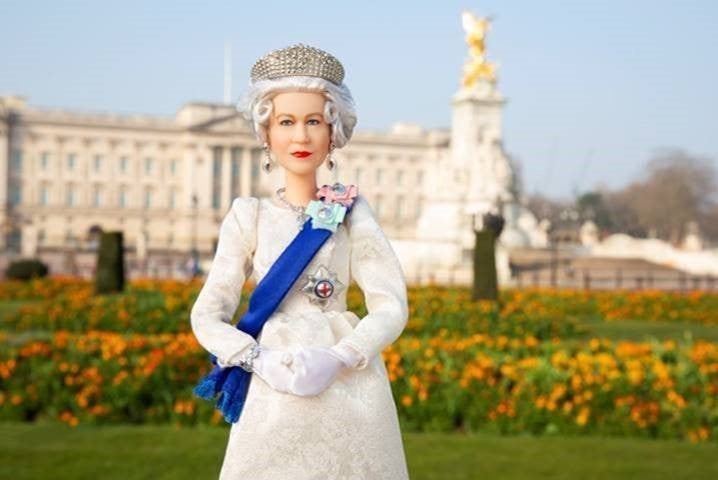A Queen Barbie isn’t a symbol of feminism – it reminds girls to know their place
Suggesting that the Queen symbolises ‘the limitless potential of every girl’ is a poor taste joke at the expense of the vast majority of girls in this country


Here’s the brief: to create a doll that “inspires the limitless potential in every girl and reminds them they can be anything”. It’s a big ask.
Girls know all too well that gender inequality is alive and kicking. How do you begin to symbolise aspiration for young women when the social landscape is so bleak? There’s the threat to girls’ public safety, in the form of continual street harassment and the normalisation of sexual abuse.
There’s the scrutinisation and stigmatisation of girls’ bodies on social media and beyond. And that’s before we even get to the gender pay gap and the glass ceiling strong enough to give most young women a concussion at some point during their future career.
For a doll to symbolise the “limitless potential of every girl” it needs to reflect the many obstacles thrown in girls’ way. Like our family origins – after all, it’s the socioeconomic context we’re born into that’s more likely to determine our potential rather than the dolls in Mattel’s latest line-up.
I know! Let’s make a Barbie doll of the Queen! Yes! She’s the perfect woman to remind girls that they can be anything. Oh wait. What?
Mattel has gone above and beyond even their own tone-deaf gender stereotypes by releasing a Barbie version of the Queen. The limited edition doll commemorates the Platinum Jubilee and also celebrates our monarch’s 96th birthday by giving her a perfectly smooth, line-free face. Seriously. You couldn’t make it up.
You may wonder what’s so terrible about a Barbie doll version of Queen Elizabeth II. She is, after all, a national treasure for so many. So many claim to be fond of the Queen, even to love her. Isn’t the Platinum Jubilee Barbie a fitting, if tongue-in-cheek, tribute to Britain’s longest-reigning monarch?
The problem is in suggesting that the Queen symbolises “the limitless potential of every girl”. It’s a poor taste joke at the expense of the vast majority of girls in this country.
When we’re still reeling from chilling examples of authorities’ mistreatment of young working class women, such as the way the grooming scandals that blighted towns across the nation were initially handled, it’s all too clear that hatred of working class women and girls remains entrenched in our culture. So much so that any attempt to symbolise the limitless potential in every girl would have to acknowledge the millions of girls and women left behind by our class system.
While Mattel seems to think our Barbie Queen is some sort of blow struck in service of feminism – a white silk-gloved fist in the air for women’s liberation – in reality, it’s the opposite. The doll is a symbol of our limitations, not our potential.
To keep up to speed with all the latest opinions and comment, sign up to our free weekly Voices Dispatches newsletter by clicking here
The Queen – and by extension the monarchy and the aristocracy – signify the British class system, something that still has a chokehold on millions in this country, despite the political lip service paid to meritocracy and social equality. Where you’re born and who you’re born to still dictates your life chances, how you’ll be treated, and even your life expectancy.
The Queen may be a cracking lass. I’ve no idea. Like everyone else, apart from her closest familial circle, I don’t know her. What I do know is that so long as the monarchy exists as a signifier that some are worthy of better treatment than others merely by accident of birth, then the class system that damages so many in this country will continue to thrive.
Just think about the official way we refer to the Queen. Her Majesty. Her Royal Highness. These are terms devised to convey superiority over other citizens. To use those addresses is to imply that some people are born better than others – is that really an idea we want to perpetuate? Clearly, for many the idea of superior breeding is an appealing one, but it’s also very dangerous.
Let’s not be mistaken, Mattel’s Barbie doll Queen may be a tribute to HRM, but it’s an insult to the millions of girls demeaned and downtrodden by the country’s class system.
Join our commenting forum
Join thought-provoking conversations, follow other Independent readers and see their replies
Comments
Bookmark popover
Removed from bookmarks